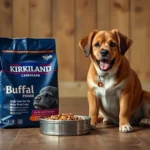
Introduction
When it comes to dog nutrition, providing a balanced diet is crucial for maintaining your canine companion’s health and well-being. A well-rounded diet typically includes proteins, fats, carbohydrates, vitamins, and minerals. In recent years, many dog owners have started incorporating vegetables into their pets’ diets to enhance nutritional value. One such vegetable that often raises questions is the beet. This article will delve into the nutritional benefits of beets, potential risks, and whether dogs can safely consume them.
Understanding Dog Nutrition
Basics of Canine Nutrition
To comprehend the role of various foods in a dog’s diet, it’s essential to understand the basic macronutrients. Dogs require:
- Proteins: The building blocks of muscles and tissues, proteins are vital for growth and maintenance.
- Fats: These provide energy and help absorb certain vitamins. They also contribute to a healthy coat and skin.
- Carbohydrates: While not essential, carbohydrates offer additional energy and aid in digestive health.
In addition to these macronutrients, dogs need various micronutrients, including vitamins and minerals, which support overall health. Lastly, water plays a fundamental role in digestion and nutrient absorption.
Essential Nutrients for Dogs
Dogs need a range of essential nutrients to thrive:
- Essential Amino Acids: These are the building blocks of protein, with some that dogs cannot synthesize themselves, requiring them to obtain these through their diet.
- Fatty Acids: Omega-3 and Omega-6 fatty acids are crucial for brain function, skin health, and inflammation reduction.
- Vitamins and Minerals: Nutrients like calcium, phosphorus, and vitamins A, D, and E play significant roles in bone health, immune function, and metabolic processes.
Introducing Vegetables in a Dog’s Diet
Benefits of Vegetables for Dogs
Incorporating vegetables into a dog’s diet can offer numerous benefits:
- Nutritional Value: Vegetables are packed with vitamins, minerals, and antioxidants that can support your dog’s immune system and overall health.
- Fiber Content: Many vegetables are high in fiber, which aids in digestion and can help prevent constipation.
- Antioxidants: These compounds can help reduce inflammation and protect against chronic diseases.
Common Vegetables Safe for Dogs
Several vegetables are considered safe and nutritious for dogs:
- Carrots: High in beta-carotene and fiber.
- Green Beans: Low-calorie and packed with vitamins.
- Sweet Potatoes: A great source of vitamins A and C, as well as fiber.
When introducing vegetables, it’s best to prepare them in a way that makes them easier for your dog to digest, such as steaming or boiling.
The Nutritional Profile of Beets
Overview of Beets
Beets are root vegetables known for their vibrant color and unique flavor. Common varieties include red beets and golden beets. They are low in calories yet rich in essential nutrients, making them an appealing addition to a dog’s diet.
Health Benefits of Beets for Dogs
Beets offer several health benefits for dogs:
- Rich in Essential Nutrients: Beets contain vitamins A, C, and K, which are vital for various bodily functions.
- High in Fiber: The fiber in beets can aid digestion and promote a healthy gut.
- Antioxidant Properties: Beets are rich in antioxidants, which help combat oxidative stress and may reduce the risk of chronic diseases.
Can Dogs Have Beets?
Safety of Beets for Dogs
Yes, dogs can have beets! The general consensus among veterinarians is that beets are safe for dogs to consume in moderation. However, as with any new food, it’s essential to introduce them gradually and monitor for any adverse reactions.
Recommended Serving Sizes
When feeding your dog beets, portion size is crucial. A general guideline is:
- Small Dogs: 1-2 teaspoons of cooked beets.
- Medium Dogs: 1-2 tablespoons of cooked beets.
- Large Dogs: ¼ to ½ cup of cooked beets.
Cooking beets is recommended, as raw beets can be harder for dogs to digest. You can serve them boiled, steamed, or roasted, ensuring no added seasonings or ingredients.
Potential Side Effects
While beets are generally safe, there are potential side effects to be aware of:
- Digestive Upset: Some dogs may experience diarrhea or an upset stomach when trying beets for the first time.
- Allergic Reactions: Although rare, some dogs may have an allergic reaction to beets. Symptoms include itching, swelling, or gastrointestinal distress.
Always observe your dog for any unusual behavior after introducing a new food.
How to Prepare Beets for Dogs
Cooking Methods
The best methods for preparing beets for dogs include:
- Boiling: Cook beets in water until tender, then cool and cut into small pieces.
- Steaming: This method preserves more nutrients while making them easier to digest.
- Roasting: Cut beets into chunks, toss with a small amount of water, and roast until tender, but avoid using any oils or seasonings.
Serving Suggestions
Beets can be incorporated into your dog’s diet in several ways:
- Homemade Dog Food: Mix cooked beets into a homemade meal, combined with proteins and grains.
- Doggie Treats: Use beets as an ingredient in homemade dog treats, blending them with other dog-safe ingredients.
Alternatives to Beets
Other Nutrient-Rich Vegetables
If you’re exploring alternatives to beets, several other vegetables offer similar benefits:
- Pumpkin: High in fiber and great for digestive health.
- Spinach: Packed with essential vitamins and minerals but should be fed in moderation due to oxalates.
- Zucchini: Low in calories and high in vitamins C and A.
When to Consult a Veterinarian
Before making any significant changes to your dog’s diet, it’s wise to consult with a veterinarian. This is especially important if your dog has pre-existing health conditions or specific dietary needs. A vet can provide tailored advice and help you determine the best approach to incorporate new foods safely.
Conclusion
In summary, can dogs have beets? Yes, they can! Beets are a nutritious addition to a dog’s diet, offering various health benefits when fed in moderation. As with any dietary change, it’s essential to monitor your dog for any adverse reactions. Remember, a balanced diet is key to your dog’s health, and incorporating a variety of vegetables can enhance their nutrition. Explore different options and consult with a veterinarian to ensure your furry friend enjoys a healthy and balanced diet.









